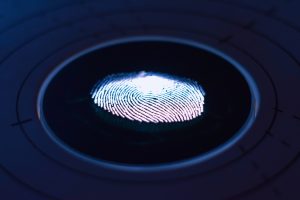In our work we spend most of our time helping families to protect their family businesses and wealth.
That means that we spend most of our time focusing on ‘big assets’ – shares in family companies and real estate; houses, apartments, commercial property and farms.
The structures we create protect those ‘big assets’. However, they are often also used to protect otherimportant assets: Cottages, Jewelry, Classic cars, Fine art collections, safety deposit boxes and IP rights. Of course, each of these different types of assets require slightly different approaches and skill sets – sometimes including the involvement of outside experts and advisers. With this focus on physical things, it is very easy to overlook another category of assets that is perhaps just as important – digital assets.

Think about your online footprint, and the various accounts that need a password to log in. Your online footprint includes social media sites, online photo storage, data clouds, digital currencies, online banking access, credit card points, and more.
Some of these things – for example the online banking – are obviously important. Others, such as online photos, perhaps less so? On the other hand, perhaps that collection of photos is in some ways the most important asset of all? If you are gone (and if you take the password with you) then those photos and memories are gone too. What about your email address? What happens to your emails when you are
gone?
Another problem can be the devices themselves. For example, without the password, some Apple and other devices become ‘bricks’. Perhaps not such a big deal, but the information, photos, and other files on the device (including your novel manuscript) might be.
Other things that seem even less important can also have financial value.
Famous chef Anthony Bourdain left his frequent flyer points to his wife in his will. He did on awful lot of flying and we imagine he had a lot of those points. Leaving them in his will ensured that his wife got the benefit of them – if he had done nothing the points (and their value) would have died with him [1] . And of course, there are some digital assets that have obvious value – especially digital currencies and NFTs.
What should you do?
For starters, make a list of your digital assets, along with usernames and passwords. Think very carefully about what you do with this list. Even making the list can in theory be a breach of some providers’ business terms and so you need to be very sure that the list never falls into the wrong hands! The list is not just to help access the assets after you are gone – but also to let your family know that the assets exist.
When making your list, it is easy to forget things, so we would recommend using some sort of checklist. The best one we know of is from the Society of Estate and Trust Practitioners. It is 30 pages long and includes far more detail than most people need, but it is a great prompt to remind you of the things you need to think about. (Unfortunately, it is only in English).
Next, check the terms-of-service on the important sites and services you use. If you are a google/android user check out Google’s “Inactive Account Manager.” If there are other important sites you use, look for the equivalents [2] . Finally, for the assets with high financial value, make sure they are included in as part of your succession plan. This is especially important for cryptocurrency and NFTs.
Trusts and Cryptocurrency
People ask us if it is possible to put something in a trust. For example, is it possible to put a gun in a trust, or a kiss? The answer is simple – if it the thing an asset that can be owned by someone, then it can be put in trust. So guns are fine, kisses not. Cryptocurrency is an asset and so there is no reason it cannot be put in trust. However, it is important that the trust includes specific rules regarding digital assets, which can otherwise be problematic for trustees.
There are endless horror stories about assets vanishing on death. For example, in order to access Bitcoin, you need to know the password or private key — a 256-bit long string of alphanumeric characters. If you die and your loved ones cannot find the key, then the money is gone forever. This is a frustrating but also surprisingly common problem.
But that’s not the only reason trusts can be a great choice for cryptocurrency, especially as these assets come under increasing regulatory scrutiny. Tax is also another important consideration. So if you own cryptocurrency, adding it to an existing trust or even creating a dedicated trust specifically to hold it can make a lot of sense.
If you would like more information about using trusts to secure you cyber currency and other valuable digital assets, please contact us.
__________________
[1] Not every frequent flier points program allows the transfer of points on death, but some do. If you have a lot of points, it is worth checking.
[2] Sadly, they don’t always exist. (As far as we know there are no Microsoft or Apple equivalents)
